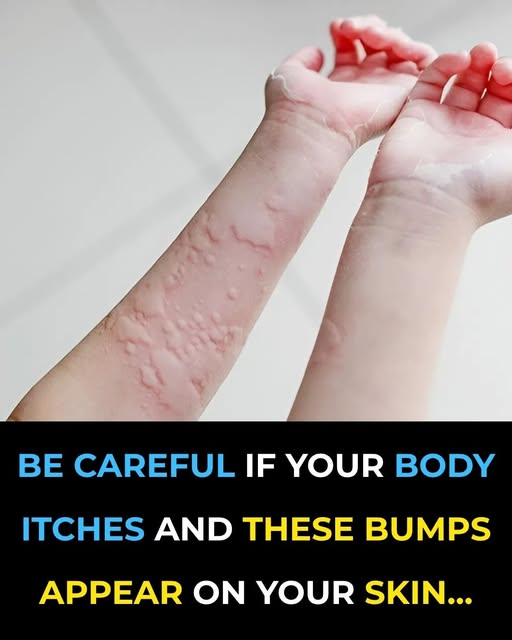Hives, also called urticaria, are one of those frustrating skin conditions that can appear out of nowhere and just as suddenly disappear. They show up as raised, red, and intensely itchy welts that can range from small pinpoint spots to large, blotchy patches covering bigger areas of the body. For some, they last only a few hours, while others endure them for days or even weeks. Because hives can be unpredictable, people often assume the cause must be an obvious food allergy or a bug bite. But the truth is, the triggers are often far more subtle—and much more common—than many realize.
Medications You Might Not Expect
One of the most frequent, yet overlooked, causes of hives is medication. Even everyday over-the-counter drugs that most people consider harmless can spark reactions. Pain relievers like ibuprofen or aspirin, and surprisingly, even certain antihistamines, have been reported to cause outbreaks in sensitive individuals. Prescription drugs are another major culprit. Antibiotics—particularly penicillin—have long been linked to urticaria, as have common medications used for high blood pressure and other conditions. The tricky part is that hives may not appear immediately. They can show up hours, or even several days, after starting a new prescription, making it harder to connect the dots. This is why monitoring your skin carefully when beginning new medications and discussing reactions with your healthcare provider is so important.
The Role of Temperature and Environment
Shifts in temperature are another surprising factor. Heat hives often appear after exercise, hot showers, or even heightened emotional stress. On the opposite end of the spectrum, cold urticaria can develop after exposure to icy air, cold water, or direct contact with ice. Even the sun can be a trigger—rare cases of solar urticaria cause welts after just minutes of sunlight exposure. Environmental triggers don’t end with temperature. Everyday allergens such as dust mites, mold, pet dander, and even latex products can set off flare-ups.
The Hidden Impact of Stress
While stress itself doesn’t directly cause hives, it can significantly worsen them or make them reappear more frequently. Emotional anxiety activates the body’s stress response, which can overstimulate the immune system. For people who are already prone to urticaria, this heightened immune reaction may be enough to trigger another episode. Chronic hives, in particular, are often linked to ongoing stress, making relaxation techniques and stress management an important part of treatment.
Infections as a Silent Trigger
Hives are also closely connected to infections. Viral infections like the common cold, influenza, or mononucleosis are frequent causes, especially in children. Bacterial infections, such as strep throat or urinary tract infections, can also lead to skin reactions. Even dental infections have been known to trigger urticaria in some cases. For children, outbreaks during or after an infection are so common that doctors often reassure parents the hives will resolve once the illness passes.
Foods Beyond the Obvious Allergens
Food allergies are often the first thing people suspect when hives appear. While well-known allergens such as peanuts, tree nuts, and shellfish are indeed common causes, there are plenty of less obvious foods that can spark a reaction. Citrus fruits, strawberries, tomatoes, and even spicy foods have been linked to urticaria. Additives such as artificial dyes and preservatives are also known irritants. For some people, exercise-induced hives occur specifically after eating certain foods and then working out—a rare but documented condition.
https://syndicatedsearch.goog/afs/ads?psid=5134551505&channel=AutoRsVariant&cx=r-aba1da708e4013be6&fexp=31094243%2C42531705%2C95362655%2C95368763%2C95369196%2C95369706%2C31094263%2C95368518%2C95359265%2C21404%2C17300003%2C17301437%2C17301438%2C17301442%2C17301548%2C17301266%2C72717107&client=pub-6638610645332968&r=m&sct=ID%3D1ed5f9d695cf0533%3AT%3D1756050149%3ART%3D1756050149%3AS%3DALNI_MZUNritDd-zppPRf-LZafSWyUP0og&sc_status=6&hl=en&rpbu=http%3A%2F%2Fgoogle.com&rpqp=q&type=3&rs_tt=c&oe=UTF-8&ie=UTF-8&format=r5&nocache=1791756154195537&num=0&output=afd_ads&domain_name=mardinolay.com&v=3&bsl=10&pac=0&u_his=3&u_tz=120&dt=1756154195537&u_w=1920&u_h=1080&biw=1905&bih=945&psw=1905&psh=10552&frm=0&uio=-&cont=autors-container-0&drt=0&jsid=csa&nfp=1&jsv=796426389&rurl=https%3A%2F%2Fmardinolay.com%2Funexpected-triggers-behind-hives-could-this-be-affecting-your-skin%2F&referer=https%3A%2F%2Fmardinolay.com%2F%3Fs%3DUnexpected%2520Triggers%2520Behind%2520Hives%252C%2520Could%2520This%2520Be%2520Affecting%2520Your%2520Skin%26fbclid%3DIwZXh0bgNhZW0CMTAAYnJpZBExNzdFVlhyM1pQQzNiYk1ybwEen3pg3T_Q6cOzmd1vGRWJGyvC_RuX0QWHmfWGNxWNu8T6UzdEXFZKdv3i4eI_aem_959ZZFZfBxuboV61FPyTtg
Hormones and Autoimmune Conditions
Hormonal changes are another piece of the puzzle, particularly for women. Fluctuations during menstruation, pregnancy, or menopause can alter immune responses and increase the likelihood of skin reactions. Autoimmune conditions such as thyroid disorders, lupus, or rheumatoid arthritis have also been tied to chronic hives, suggesting that in some cases the body’s immune system may be attacking itself, with the skin bearing the brunt of the response.
When Clothing and Lifestyle Play a Role
Sometimes the trigger isn’t internal at all but mechanical. Tight clothing, belts, or straps that press on the skin can cause pressure hives, also known as dermatographism. Even scratching or rubbing can raise itchy welts in some people. Exercise itself may trigger hives, independent of food or temperature changes, simply due to increased blood flow and sweating.
Managing and Treating Hives
If you develop hives, the most important rule is not to scratch. Scratching inflames the skin further and increases the risk of infection. Applying cold compresses or using soothing lotions like aloe vera gel can provide temporary relief. Over-the-counter antihistamines such as cetirizine (Zyrtec), loratadine (Claritin), or diphenhydramine (Benadryl) are often effective for mild cases. For more persistent or chronic outbreaks, doctors may recommend stronger antihistamines or immune-modulating medications.
When to Seek Medical Help
Not all hives are harmless. Immediate medical attention is necessary if hives last longer than six weeks, spread rapidly, or are accompanied by swelling of the face, lips, or throat; difficulty breathing; dizziness; or other systemic symptoms. These could signal a serious allergic reaction called anaphylaxis, which is life-threatening and requires urgent care.
The Bottom Line
Hives may seem random, but they rarely are. Understanding that triggers extend far beyond the obvious—stretching into medications, infections, stress, temperature changes, foods, hormones, and even tight clothing—can make managing them far easier. By paying attention to patterns, keeping a journal of potential triggers, and working with a healthcare provider, most people can find relief and reduce future flare-ups.
Ultimately, hives are a reminder of how sensitive and interconnected our bodies really are. Identifying the root causes and responding with thoughtful care can help keep your skin calm, healthy, and free of unwelcome surprises.
